Students In Iran Protest Dismissal, Suspension Of Professors
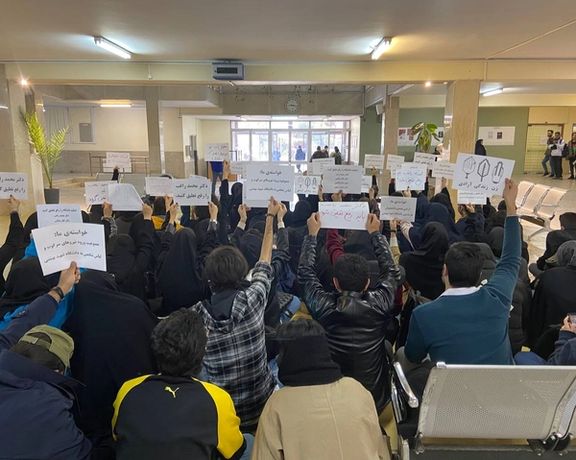
University students have kept up strikes, class boycotts, and sit-ins in some universities in Iran, 74 days after popular protests started against the Islamic Republic government.

University students have kept up strikes, class boycotts, and sit-ins in some universities in Iran, 74 days after popular protests started against the Islamic Republic government.
The students at Beheshti University held a sit-in Monday in protest to the suspension of professors who supported the students.
In a statement, they announced if the suspensions and dismissals continue, they are ready to boycott classes and end-of-semester exams.
Earlier, an assistant professor of Beheshti university, Mohammad Ragheb, wrote on his Instagram page that he has been suspended because of his participation in anti-government protests.
Previously, Hossein Mesbahian, a faculty member of University of Tehran also stated that he had been fired upon the order of university officials.
On Sunday, students at Tehran University's Faculty of Literature staged a sit-in to protest the dismissal of Hossein Mesbahian.
Iranian media reported that Tehran University political science professor Sadegh Zibakalam was summoned Monday by Tehran Prosecutor's Office.
Zibakalam is an Iranian academic, author and pundit described as reformist and neo-liberal. He appears frequently on international news outlets including the BBC News and Al Jazeera.
The US-based Human Rights Activists News Agency (HRANA) in its latest report said 569 students have been arrested since September 16 when the nationwide protests began in Iran triggered by the killing of Mahsa Amini in police custody.
HRANA also noted that as much as 143 universities across Iran have been the scene of anti-regime demonstrations.
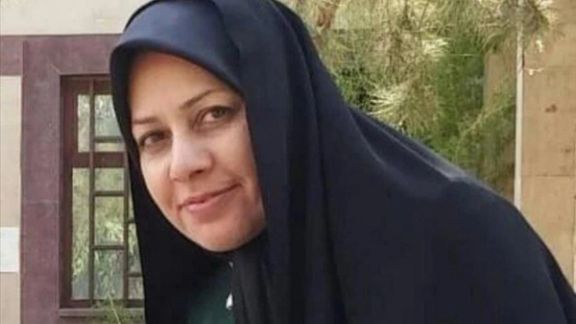
Iran’s Supreme Leader's niece, an outspoken rights activist, has called on foreign governments to cut all diplomatic relations with the Islamic Republic, in a video released after her arrest.
The video message was released on Friday, less than a week after US-based Human Rights Activists News Agency (HRANA) reported the detention of Farideh Moradkhani, whose late father was a prominent opposition figure married to Khamenei's sister.
Decrying the Islamic Republic's bloody crackdown on protests, sparked by the death in custody of Mahsa Amini, she called on people in other countries to be "with us and tell your governments to stop supporting this murderous and child-killing regime. This regime is not loyal to any of its religious principles and does not know any rules except force and maintaining power."
Human beings around the world are watching the battle between Iranians and the evil forces of the regime, she said, criticizing the United Nations for lack of action against the Islamic Republic except for statements of condemnation. According to HRANA, 450 protesters have been killed in more than two months of nationwide unrest as of November 26, including 63 minors. Over 18,173 protesters have also been detained.
She called on the world to end the reign of her uncle, describing him as similar to dictators such as Adolf Hitler, Benito Mussolini, Nicolae Ceaușescu, Muammar Gaddafi, Saddam Hussein, and the Islamic Republic’s founder Ruhollah Khomeini.
"Now is the time for all free and democratic countries to recall their representatives from Iran as a symbolic gesture and to expel the representatives of this brutal regime from their countries," she said.
The video was shared on YouTube on Friday by her brother, France-based Mahmoud Moradkhani, who presents himself as "an opponent of the Islamic Republic" on his Twitter account. He reported her sister's arrest as she was heeding a court order to appear at the Tehran prosecutor's office. Farideh Moradkhani was arrested also earlier this year by Iran's Intelligence Ministry and later released on bail. She had earlier faced a 15-year prison sentence on unspecified charges.
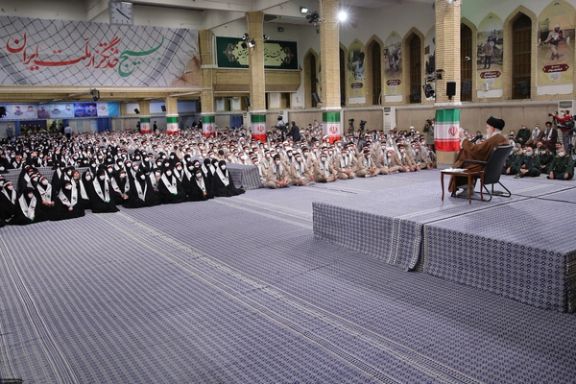
Her father, Ali Moradkhani Arangeh, was a Shiite cleric married to Khamenei's sister and passed away in Tehran on October 19 following years of isolation due to his critical stance against the Islamic Republic. Upon return to Iran from Iraq, where he fled to avoid arrest, he was sentenced to 20 years in prison in 1995 but was released ten years later in 2005.
Criticism of the Islamic Republic has been growing by relatives of top officials. In 2012, Faezeh Hashemi Rafsanjani, the daughter of late former president Akbar Hashemi Rafsanjani, was sentenced to jail for "anti-state propaganda".
On Thursday, the United Nations Human Rights Council convened to discuss the deteriorating situation in the Islamic Republic of Iran, especially with respect to women and children and approved establishing a new investigative mission to probe into Tehran's clampdown on antigovernment protests.
On Saturday, Khamenei praised the country’s Basij paramilitary force for its role in the deadly crackdown, saying, “When facing the enemy on the field of battle, the Basij has always shown itself to be courageous, not afraid of the enemy.”
His remarks came as the situation in Iran remained tense Saturday as people closed their businesses to show support for protests and students held sit-ins at different universities.
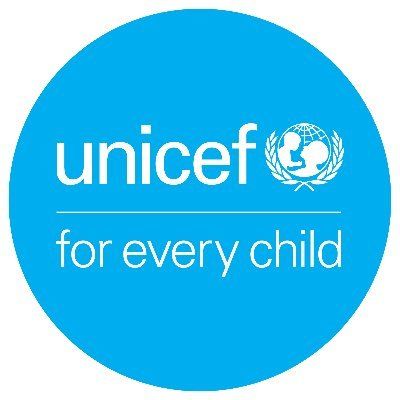
The United Nations Children's Fund has censured government violence against children in Iran, calling for an end to all forms of abuse directed at children.
UNICEF in a statement on Sunday said it has received reports that the Iranian regime’s violence has claimed the lives of over 50 children and injured many more during the unrest in Iran.
"UNICEF also remains deeply concerned about continued raids and searches conducted in some schools. Schools must always be safe places for children,” underlined the international body.
It also said it directly communicated its concerns to the authorities in Iran since the first cases of child casualties occurred in response to the protests.
UNICEF went on to urge Iranian officials to respect the rights of all children to “peaceful assembly as a fundamental guarantee” - no matter who they are or where they are.
It called on security forces to refrain from using “unnecessary or disproportionate force”, underlining that kids and adolescents must be protected from all forms of “mental and physical harms”.
In recent weeks, UNICEF and its ambassadors had been widely criticized on social media for being silent about the suppression of children in Iran.
Earlier, the Iranian envoy to UNICEF, actress Mahtab Keramati, resigned to protest the lack of action.
Oslo-based Iran Human Rights Organization in its latest report said at least 51 children have been killed by security forces in the ongoing nationwide protests.
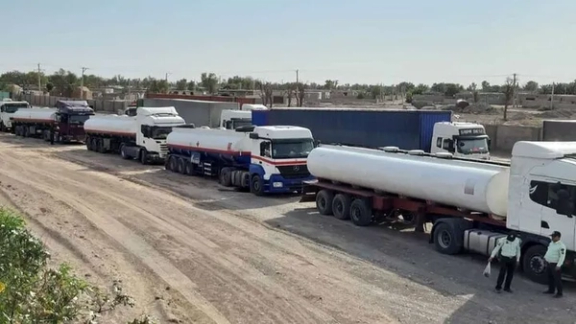
Antigovernment protests in Iran continued Sunday mainly through nationwide strikes by truckers and protest rallies at universities during the day and street rallies through the night.
Antigovernment protests in Iran continued Sunday mainly through nationwide strikes by truckers and protest rallies at universities during the day and street rallies through the night.
Truck drivers and owners in many cities across the country did not move their vehicles on Sunday in one of the biggest strikes taking place in more than two months since the current wave of protests began following the death in police custody of 22-year-old Mahsa Amini.
Truckers in several cities such as Esfahan, Bandar Abbas, Qazvin, and Kermanshah refrained from moving goods in support of the protests, sit-ins and strikes by industrial workers. Many people on social media describe the strike by the truckers as a significant blow to the Islamic Republic since it has the potential to cripple the economy. Some people say, “the truckers are leading the revolutionary uprising.”
The strike is so costly for the regime that it has already started giving the drivers extra fuel subsidies to lure them back into work.
In a video that became viral on Sunday, a driver is heard saying that if the government was able to give them subsidies before, why did they refuse to do so earlier in the year when they held another round of nationwide strikes.
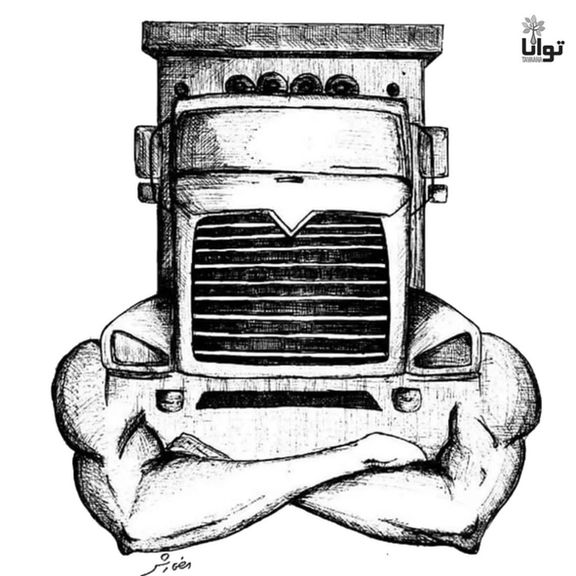
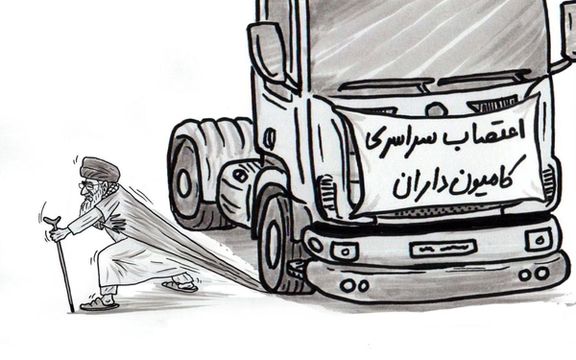
This round of strikes started Saturday after a call for a 10-day work stoppage by the Truck Drivers’ Union, while numerous workers at steel and automobile factories also stopped work on Saturday. Workers at Esfahan Steel Company, Alvand SarmaAfarin Incorporation, Morattab Car Manufacturing, Safe Khodro Car Manufacturing Company, Qazvin’s Pars Appliances Company, and some others joined many other factories already on strikes.
In recent weeks workers at dozens of industrial units, including automobile manufacturing, household appliances, heavy industries, petrochemicals, oil, gas, sugarcane, etc., went on strike. Shopkeepers and business owners in dozens of Iranian cities also closed their shops and went on strike many times for consecutive days in support of the uprising against the clerical regime.
The streets of many Iranian cities as well as the capital Tehran were also scenes of rallies after the sun set on Sunday, while calls for nationwide protests has been issued by different groups for the coming week.
People in several neighborhoods of Tehran held rallies and set trash cans on fire while chanting slogans against the regime’s crackdown on protesters.
According to the US-based Human Rights Activists News Agency (HRANA), from September 16 until Friday, November 25, at least 448 protestors have been killed, of which 63 were minors. While the Islamic Republic has not provided accurate figures of those detained in the protests, the watchdog went on to say that at least 18,170 protesters have been arrested including 565 students.HRANA added that 156 cities and more than 140 universities across Iran have also been the scenes of anti-government protests.
However, the Islamic Republic has also released several people detained during protests or in support of the protesters. Among the prominent dissident figures who have been freed on bail are human rights activist and journalist Hossein Ronaghi and actress Hengameh Ghaziani. Ronaghi, who was transferred to hospital directly from Evin prison, had been on a hunger strike that lasted over 60 days.
Many people call their release a new propaganda trick by the Islamic Republic to divert attention from the bloody crackdown in Kurdish and Baloch cities while some believe the new moves are the consequence of the international measures against the Islamic Republic. The United Nations Human Rights Council on Thursday adopted a resolution based on which an international panel will be formed to investigate the violence against protesters in Iran.
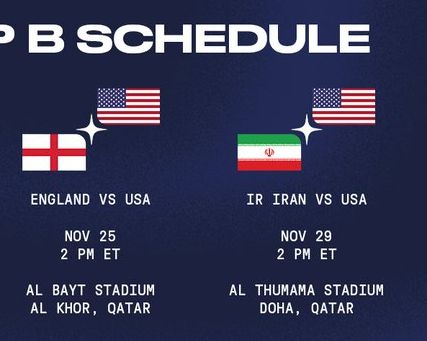
Tensions rise between Washington and Tehran before their national teams face each other in 2022 World Cup as US soccer federation temporarily showed Iranian flag on social media without emblem of the Islamic Republic.
“We wanted to show our support for the women in Iran with our graphic for 24 hours,” the federation says.
The move came as nationwide protests challenging Islamic Republic’s clerical rulers continue in Iran.
Iran's regime reacted by accusing the US of removing the name of God from their national flag, claiming the display violated FIFA’s ethics rules, which mandate a minimum 10-game suspension for racist behavior.
Iran’s IRGC-affiliated Tasnim news agency quoted Safiollah Faghanpour a legal adviser to the Iranian Football Federation, saying that FIFA will be asked to suspend the US men’s soccer team.
The symbol was later restored to the flag, but the hope of organizers to hold the World Cup far from the political moves once again failed.
The Islamic Republic emblem, designed in 1980, is four curves with a sword between them. It represents the Islamic motto: “There is no god but Allah.”
At the top and the bottom of the flag, there are 22 inscriptions of “God is Great” as well, which refers to the date on the Iranian calendar when the Islamic Revolution took place in 1979.
However, following the nationwide protests against the Iranian regime, pro-government supporters have waved it during the matches in the World Cup, but others have waved Iran’s historic flag which bears a lion and sun.
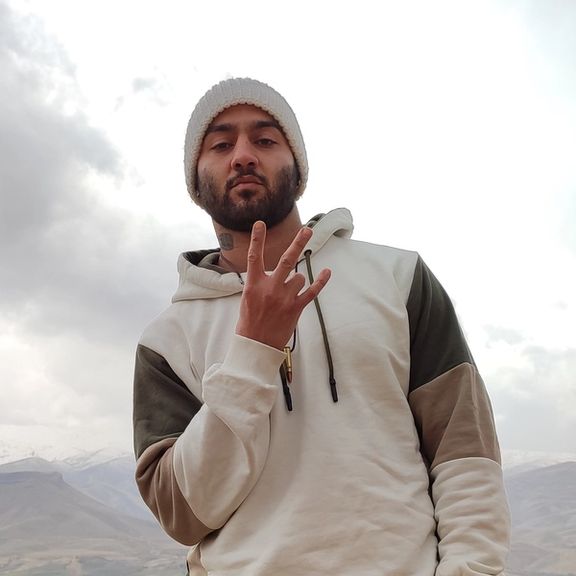
Chief Justice of Iran’s Esfahan province says dissident popular rap singer Toomaj Salehi has been accused of “corruption on earth” which may carry the death penalty for him.
Asadollah Jafari on Sunday said Toomaj Salehi faces other charges, including “propaganda activity against the establishment, forming an illegal group with the intention of disrupting the security of the country, cooperating with hostile governments, and spreading lies and inciting others to commit violence.”
However, Jafari said no court has been held for the rap singer yet. Toomaj Salehi was detained in late October after criticizing the Islamic Republic and expressing solidarity with the protest movement after the death of Mahsa Amini in police custody.
This comes as sixteen UN-appointed independent human rights experts urged the Iranian government to stop using the death penalty as a tool to punish protesters.
A US-based human rights group said on Saturday that Toomaj Salehi's trial had begun “without an attorney of his choice,” and his family said his “life is in danger.”
Earlier this month, 126 musicians, poets, artists, and activists called for his release.
Salehi’s arrest came shortly after his interview with the Canadian Broadcasting Corporation, saying that “You are dealing with a mafia that is ready to kill the entire nation... in order to keep its power, money and weapons.”
In his politically charged songs such as “Buy a Rat Hole”(2021), Toomaj, a 32-year-old metalworker in Esfahan, spoke out against repression, injustice, poverty, and authorities’ own corruption and impunity from prosecution.